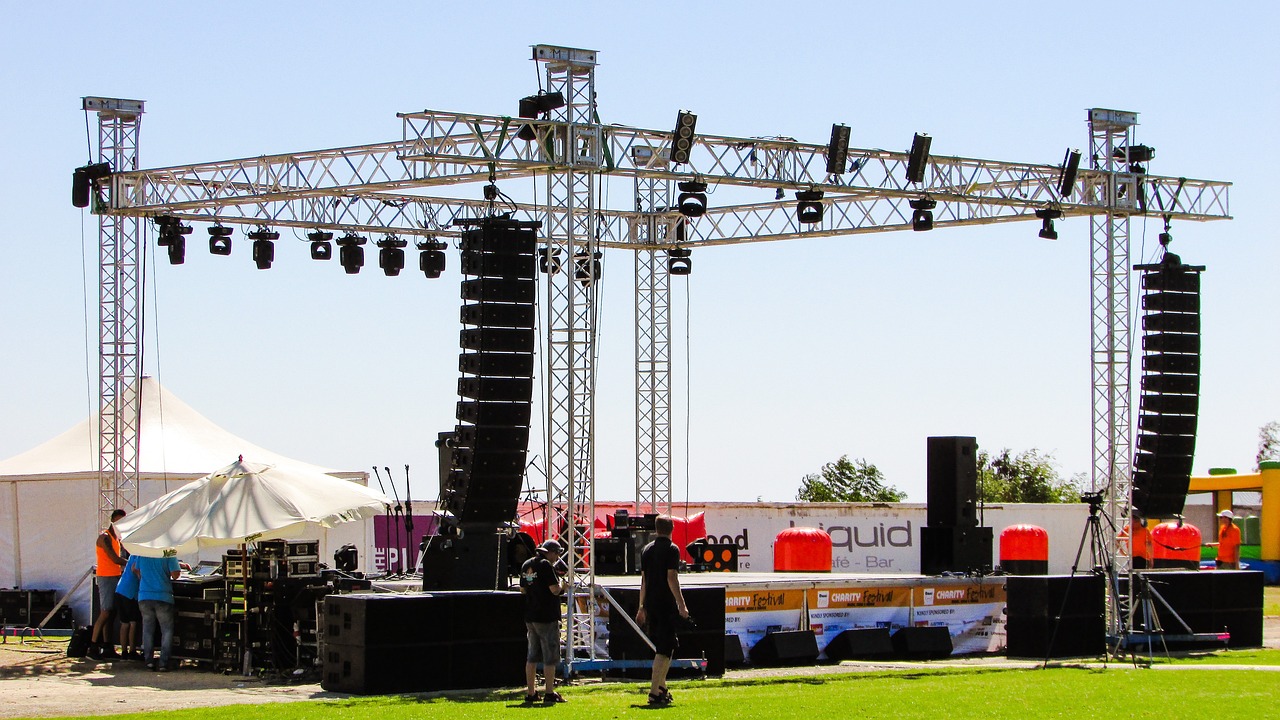Music Festival Single Stage or Multiple Stages - Which are Best.

Music festivals can have numerous stages or one single stage and there are a variety of reasons why organisers may opt for one or the other. This may be driven by budgetary constraints, physical venue size and types of music genres on offer but which format is best for festival-goer experience and the artists preforming at the event.
Festival-goers can expect more events to have multiple stages than a single stage nowadays however historically most music festivals tended to have a single stage. The need for multiple stages is often driven by the need to grow and expand an event and offer more genre options which in turn can lead to increased ticket sales. Which format generates the best atmosphere for festival-goers and what's driving organisers decisions regarding stages.
Costs and Budgets.
Building a stage is an expensive operation even using off the shelf modular systems do not come cheap. If there are additional artistic requirements to customise a stage to fit with an event’s theme costs can soon skyrocket. A stage construction budget can be the driving force along with the backline budgets which will increase for every additional stage required.
Music Genres.
A festival that has a focus on a single music genre can help the decision making for organisers who are more likely to stick with a single stage option. Mixed genre festivals using a single stage can be more chaotic as technical specs can be very different leading to changeover delays and festival-goers constantly moving in and out of the stage area. Multiple stages are ideal for events with mixed genres as artists and fans of a particular genre can stick to a designated zone.
Benefits of a Single Stage.
Having a single stage at a festival can help lift the overall atmosphere as it gives festival-goers a single focus during the event without the need to move around the site to see their favourite artist. Organisers can invest more in quality sound and lighting systems rather than having a reduced budget for multiple stages. Festival-goers are more likely to stay longer in the stage area which can foster a stronger sense of community with a single collective experience.
Benefits of Multiple Stages.
Multiple stages give organisers an opportunity to increase the variety of music on offer to festival-goers. Stages can focus on specific genres or can be used to highlight up-and-coming or unsigned artists for example. Organisers can squeeze more artists into their festival with a larger line-up which can be great for increasing tickets sales as festival-goers feel they are getting better value for money. Multiple stages also allow organisers to better control crowd movements by spreading audiences and alleviating overcrowding issues sometimes experienced with single stage events.
Many organisers opt for a compromise when it comes to stages, with higher investment in a single larger main stage but with a handful of lower budget smaller stages that operate during daylight hours only. Nighttime can see a focus on a single main stage which enables organisers and festival-goers to benefit from both options of multiple and single stages.
For festival organisers planning their events using a software management platform like Festival Pro gives them all the functionality they need manage every aspect of their event logistics. The guys who are responsible for this software have been in the front line of event management for many years and the features are built from that experience and are performance artists themselves. The Festival Pro platform is easy to use and has comprehensive features with specific modules for managing artists, contractors, venues/stages, vendors, volunteers, sponsors, guestlists, ticketing, cashless payments and contactless ordering.
Image by dimitrisvetsikas1969 via Pixabay
<< Back to articles
Contact us
Get in touch to discuss your requirements.
US: +1 424 485 0220 (USA)
UK: +44 207 060 2666 (United Kingdom)
AU: +61 (2) 8357 0793 (Australia)
NZ: +64 (0)9887 8005 (New Zealand)